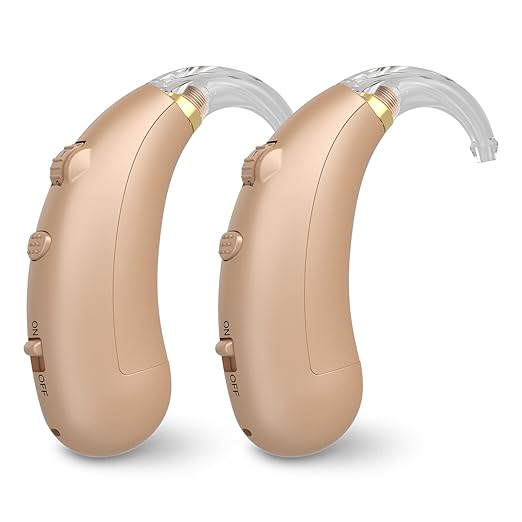Understanding Hearing Loss
Hearing loss is a common issue that many people experience as they age. It can impact daily life, making it difficult to communicate and participate in social activities. Recognising the signs early can make a significant difference. Common indicators include struggling to hearing aids for seniors hear conversations in noisy environments, needing to turn up the volume on the television, or frequently asking people to repeat themselves. Addressing hearing loss promptly can improve overall quality of life and maintain cognitive function.

Types of Hearing Aids Available
The market offers a wide array of , each designed to meet different needs and preferences. Behind-the-ear (BTE) models are among the most common, known for their reliability and suitability for a broad range of hearing loss levels. In-the-ear (ITE) options offer a affordable hearing aids more discreet fit, while in-the-canal (ITC) and completely-in-canal (CIC) devices are virtually invisible. Receiver-in-canal (RIC) hearing aids are another popular choice, combining comfort and sound quality. Your audiologist can advise you on the best type for your specific requirements.
Factors to Consider When Choosing
Selecting the right hearing aid involves careful consideration of various factors. The severity of your hearing loss is a primary determinant, as different models are better suited for mild, moderate, or severe impairment. Lifestyle also plays a crucial role; active individuals may prefer durable, sweat-resistant devices. Consider your budget and the features that are most important to you, such as noise reduction, Bluetooth connectivity, or rechargeable batteries. Consulting with an audiologist can provide personalised recommendations based on your individual needs and preferences.
The Benefits of Using Hearing Aids
Wearing offers numerous advantages beyond simply improving hearing. They can significantly enhance communication, allowing you to engage more fully in conversations and social interactions. Improved hearing can also boost confidence and reduce feelings of isolation or frustration. Furthermore, studies have shown that addressing hearing loss can help maintain cognitive function and reduce the risk of cognitive decline. Investing in hearing aids is an investment in your overall well-being and quality of life.
Exploring Affordable Options
The cost of hearing aids can be a significant concern for many individuals. However, there are several ways to find without compromising on quality. Many manufacturers offer financing plans or payment options to spread the cost over time. Additionally, some insurance plans may cover a portion of the expense. Explore different brands and models to find options that fit your budget, and consider refurbished or pre-owned devices, which can offer substantial savings. Remember to prioritise your hearing health, and explore all available resources to make hearing aids accessible.
Maintaining Your Hearing Aids
Proper maintenance is essential to ensure the longevity and optimal performance of your hearing aids. Clean your devices regularly using a soft, dry cloth to remove wax and debris. Store them in a safe, dry place when not in use, and avoid exposing them to extreme temperatures or humidity. Replace batteries as needed, and schedule regular check-ups with your audiologist to address any issues or concerns. With proper care, your hearing aids can provide years of reliable service.
How to Adjust to New Hearing Aids
Adjusting to new hearing aids can take time and patience. Start by wearing them for short periods each day, gradually increasing the duration as you become more comfortable. Practice listening in different environments to get used to the amplified sounds. It's normal to experience some initial discomfort or difficulty distinguishing certain sounds. Work closely with your audiologist to fine-tune the settings and address any concerns you may have. With persistence and proper guidance, you'll soon enjoy the full benefits of improved hearing.
Finding the Right Audiologist
Choosing a qualified and experienced audiologist is crucial for successful hearing aid fitting and ongoing care. Look for a professional who is certified and has a strong reputation in the community. Schedule a consultation to discuss your hearing concerns and learn about available options. A good audiologist will take the time to understand your individual needs and preferences, and will provide personalised recommendations and support throughout the process. They will also offer ongoing maintenance and adjustments to ensure your hearing aids continue to perform optimally. Finding also depends on the right audologist.
Conclusion
In summary, addressing hearing loss is a crucial step towards maintaining a high quality of life, especially as we age. The availability of various hearing aid types and means that there is a solution for almost everyone. Remember that recognising the early signs of hearing loss and seeking professional help is paramount. Consider your lifestyle, budget, and specific needs when choosing a device, and ensure you find a qualified audiologist to guide you through the process. Ultimately, investing in hearing aids is an investment in your overall well-being, enabling you to stay connected, engaged, and active in all aspects of life. Don't let hearing loss hold you back; take proactive steps to rediscover the joy of clear and vibrant sound.